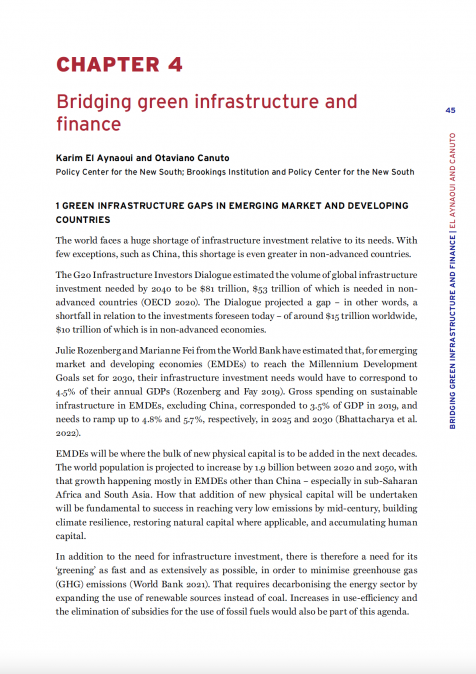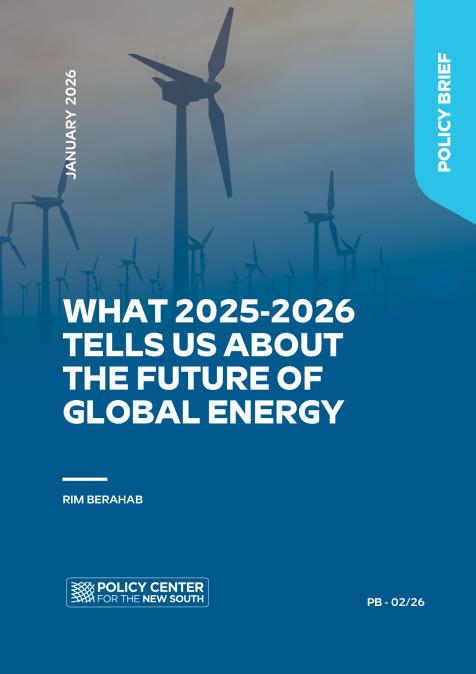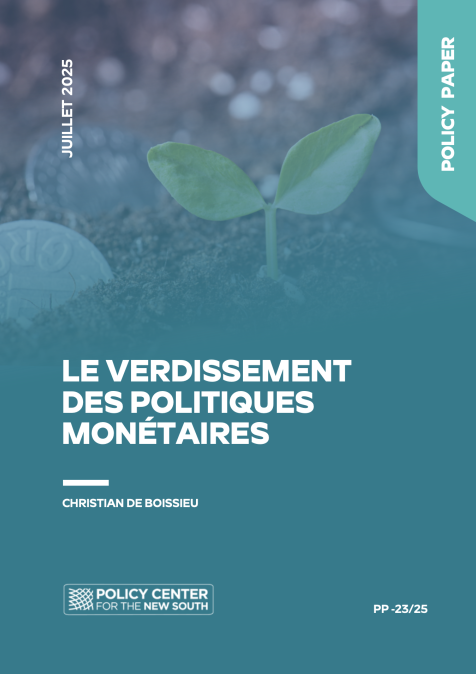Publications /
Policy Paper
This chapter was originally published in CEPR's eBook "Scaling Up Sustainable Finance and Investment in the Global South"
The world faces a huge shortage of infrastructure investment relative to its needs. With few exceptions, such as China, this shortage is even greater in non-advanced countries.
The G20 Infrastructure Investors Dialogue estimated the volume of global infrastructure investment needed by 2040 to be $81 trillion, $53 trillion of which is needed in non- advanced countries (OECD 2020). The Dialogue projected a gap – in other words, a shortfall in relation to the investments foreseen today – of around $15 trillion worldwide, $10 trillion of which is in non-advanced economies.









